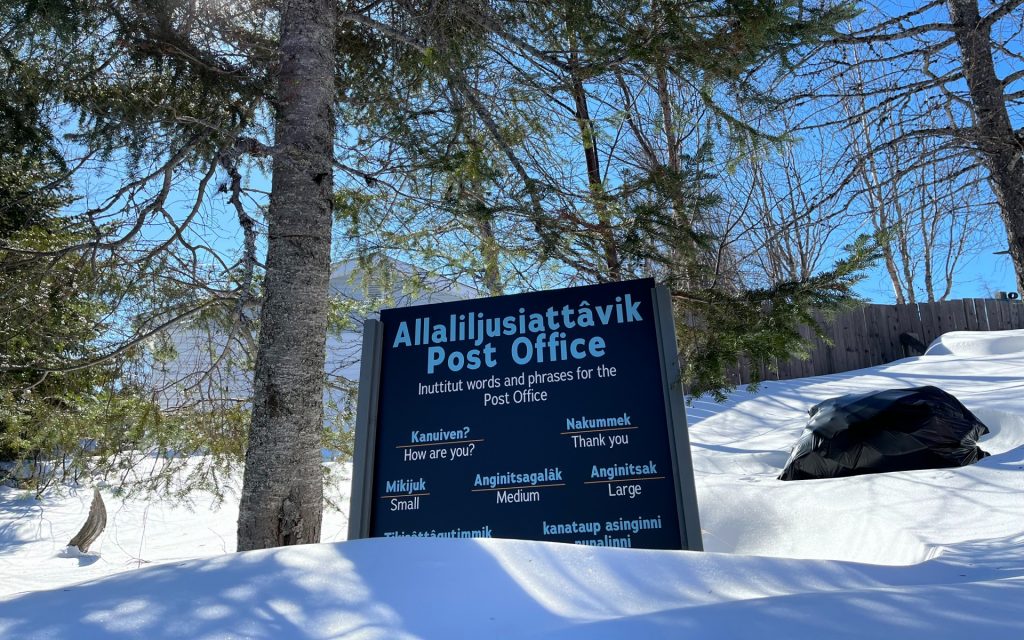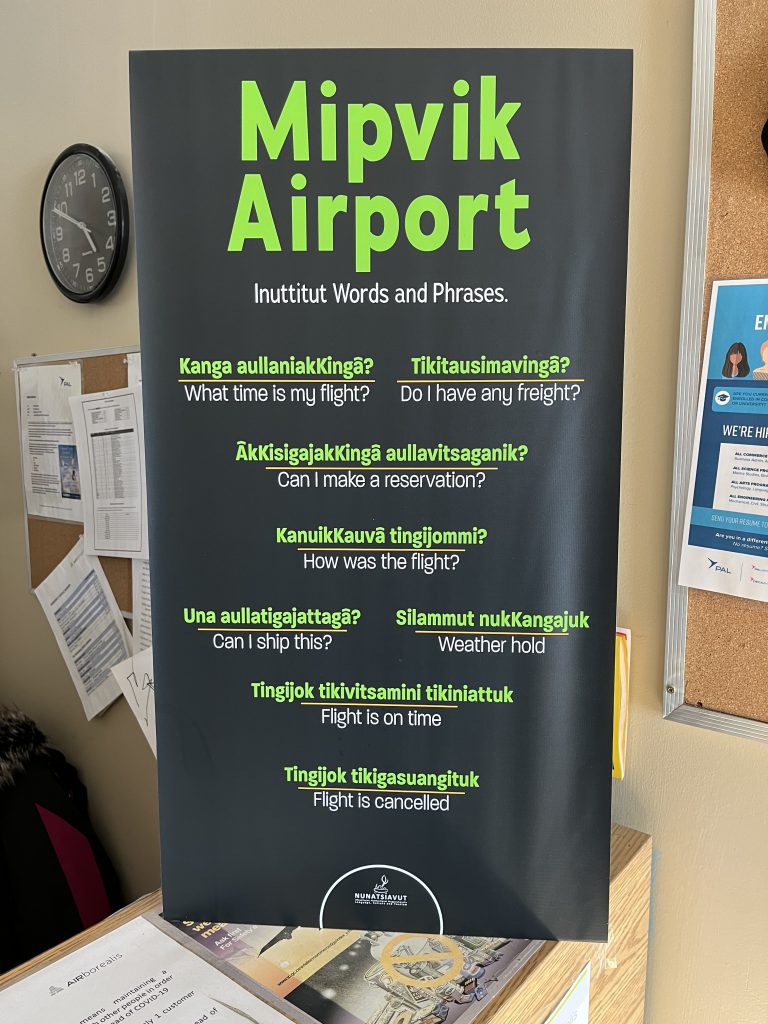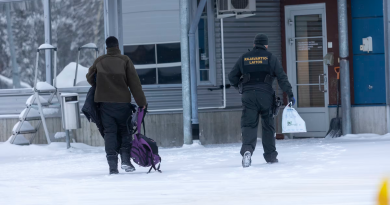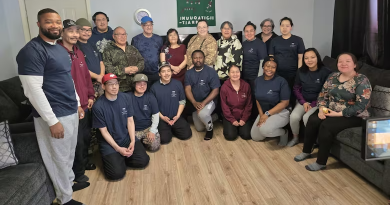Inuttitut language revitalization campaign underway in Labrador Inuit region

The first-ever Inuttitut Blitz is underway in Nunatsiavut, something the government hopes will encourage people to use the Inuit language—no matter their fluency level—in their everyday lives.
“It’s up to Labrador Inuit, and beneficiaries living in all corners of the country, to do their part to promote and revitalize the language,” Roxanne Barbour, Nunatsiavut’s minister of Language, Culture and Tourism, told Eye on the Arctic in a phone interview.
“With [the Inuttitut Blitz] we’re trying to create safe, positive and encouraging spaces where everyone is welcomed and can feel comfortable using Inuttitut whether they’re fluent or not.”
Launched in April, the campaign will see online and in-person events held across the region to promote the use of the language.
Turning language loss around
Nunatsiavut is the Inuit region in the Atlantic Canadian province of Newfoundland and Labrador.
The region’s population of 2,560 is spread out between five communities—Nain, Hopedale, Makkovik, Postville and Rigolet—along the coast.
An additional 4,500 beneficiaries live outside of Nunatsiavut.
In Canada, there are several dialects of the Inuit language, with Inuktitut the most common and widely spoken with close to 100 per cent of people in all age groups able to converse in it in Nunavik, the Inuit region of northern Quebec; and 89 per cent of people able to speak it in the eastern Arctic territory of Nunavut.
Inuttitut, the Inuit language spoken in Nunatsiavut, is the most in danger with only 5.4 per cent of children under 14 years old speaking it, and only 27.5 per cent of adults 65 years old speaking it, according to Statistics Canada’s 2021 Census of the Population.

Nunatsiavut held a language summit in 2019 to work on boosting the use of the language in the region. A five year plan, the 2021-2026 Language Strategy, came out of the conference and led to the Inuttitut Blitz campaign launch this year.
“We heard from communities and beneficiaries that they wanted more language resources available so our staff got together and brainstorm ways we could positively and consistently get out resources for promotion and encouragement of the language, Barbour said. “This is the first year we are doing this and plan to do similar work in the future.”
Events will be held in communities throughout the campaign that will allow people to come together to speak or practise their language skills.
“We’ve just completed our first on-the-land immersion programming where a group went to Hebron where they were immersed in the language with two instructors,” Barbour said.
Online initiatives include the May 9 launch of an Inuttitut module on the Inuit-language learning website Tusaalanga, making it the seventh Inuit-language dialect to be added to the site.
“It’s really big,” Barbour said. “We’ll also be distributing some textbooks in schools and rolling out a language and culture newsletter to keep beneficiaries informed of all our programming that’s going on.”
“It takes the whole community”

Barbour says the main message of the campaign is to have fun and remember that daily effort with the language can lead to powerful results.
“It could be as small as just practicing one word a day,” she said. “Or if you mispronounce a word, maybe just taking a minute to practice pronouncing it correctly. Of if you already know a few words, or a phrase, try to use them as much as you can. If you do that everyday, it becomes a habit.
“All of us as Labrador Inuit must do our part, to be eager to learn, to let people make mistakes as they learn, and to encourage our friends, family and co-workers. It takes the whole community to do that and create those safe spaces.”
The Inuttitut Blitz runs until August.
Write to Eilís Quinn at eilis.quinn@cbc.ca
Related stories from around the North:
Canada: Mark Indigenous languages decade by making Inuktitut official in Canada: Inuit UN rep, The Canadian Press
Finland: Everyone encouraged to boost Sami language visibility in Finland, Norway and Sweden this week, Eye on the Arctic
Norway: Indigenous and minority language names for Norway now have official status, The Independent Barents Observer
Russia: German project to house everything published in Siberian and Arctic languages to seek new funding, Eye on the Arctic
Sweden: Can cross-border cooperation help decolonize Sami-language education, Eye on the Arctic
United States: Inuit leaders applaud UN move to designate International Decade of Indigenous Languages, Eye on the Arctic



